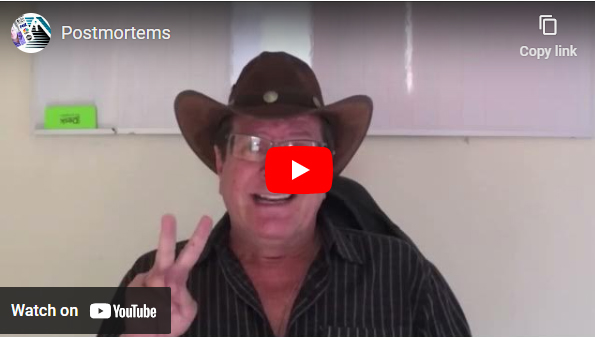Postmortems
In project management, teams often rush to the next initiative after completing a project. However, skipping postmortems—structured project reviews—can be a missed opportunity for growth. Postmortems are essential for analyzing the successes, challenges, and outcomes of a project. They help teams learn from experience and improve over time.
Learning from Mistakes
One of the key benefits of postmortems is the ability to learn from screwups. Projects often encounter issues like missed deadlines, communication breakdowns, or resource constraints. Without reflecting on these challenges, teams risk repeating the same mistakes in future projects. More importantly, the company you work for paid for these damn mistakes and don’t want them repeated.
Postmortems offer an opportunity to identify the root causes of problems and address them. Whether it’s a lack of alignment between stakeholders or inefficient workflows, recognizing and understanding these issues is critical. This approach fosters a culture of accountability and continuous improvement, as teams work together to implement corrective actions.
Building on Successes
Postmortems are also valuable for understanding what went well. While it’s easy to focus on problems, identifying the factors that contributed to a project’s success is equally important. Basically, sometimes we get shit right and it should be documented. By recognizing effective communication strategies, strong teamwork, or efficient resource use, teams can develop best practices to apply to future projects.
This reflection helps organizations build institutional knowledge, allowing them to replicate success consistently. Celebrating these wins also boosts team morale, reinforcing positive behaviors and strategies that contribute to successful project outcomes. So sing the praises of success in postmortems.
Improving Processes
Postmortems often reveal inefficiencies in workflows or processes. Projects may expose bottlenecks, communication issues, or ineffective tools. By analyzing these pain points, teams can refine their workflows to boost productivity and streamline future projects.
For example, if unclear task handoffs caused delays, postmortems provide an opportunity to design better task management processes. Over time, small adjustments in workflow can lead to significant improvements in efficiency and project execution.
Enhancing Stakeholder Communication
Effective communication is vital for project success. Postmortems allow teams to gather feedback from stakeholders, including clients, sponsors, and internal team members, to assess how well communication flowed during the project. Miscommunications or unmet expectations often surface during this process.
By addressing communication issues, teams can improve stakeholder engagement in future projects. This not only enhances project outcomes but also strengthens relationships with clients and stakeholders, showing a commitment to transparency and continuous improvement.
Promoting Accountability and Growth
Postmortems play a critical role in fostering accountability (aka who fucked it up?). During the process, team members reflect on their performance, assess how well they met their commitments, and identify areas for improvement. This encourages a sense of ownership and responsibility among team members.
The process also holds project managers accountable for reviewing project results. It ensures they take the time to analyze what worked and what didn’t, rather than rushing into the next project without learning from the experience.
Conclusion
Postmortems are a vital tool in project management, driving continuous improvement and promoting accountability. By learning from mistakes, building on successes, and improving processes, postmortems help organizations deliver better results and foster a culture of learning and growth. For project managers, incorporating postmortems into the project lifecycle is key to long-term success. More importantly, this information needs to be captured in a lessons-learned database for future review, but that is another post.
Let’s Git-R-Done this week!

